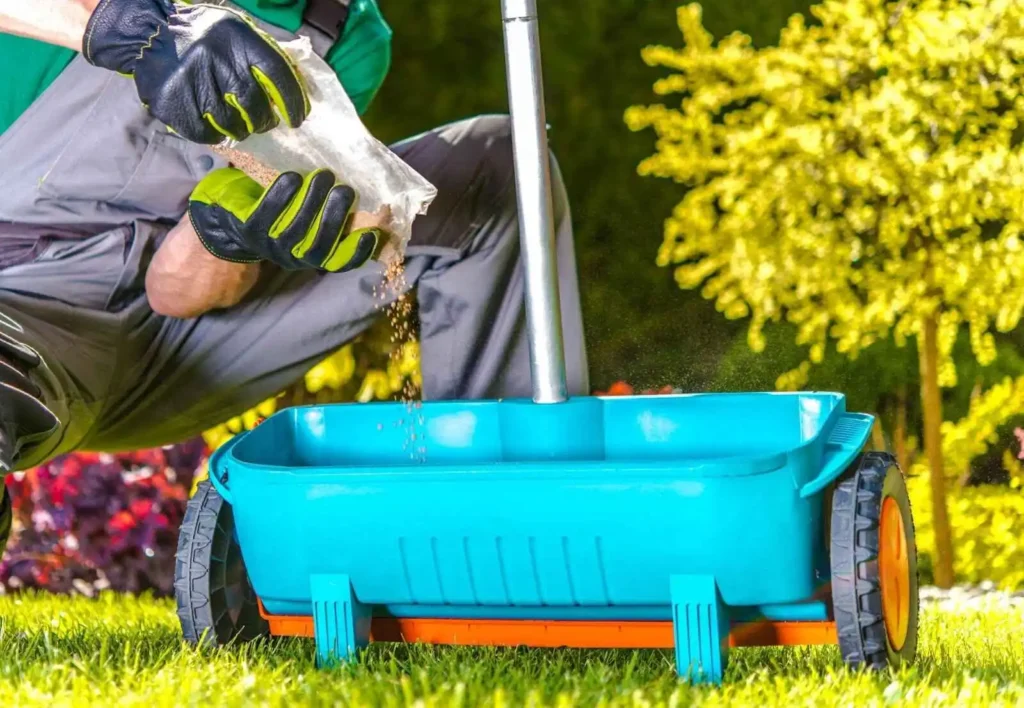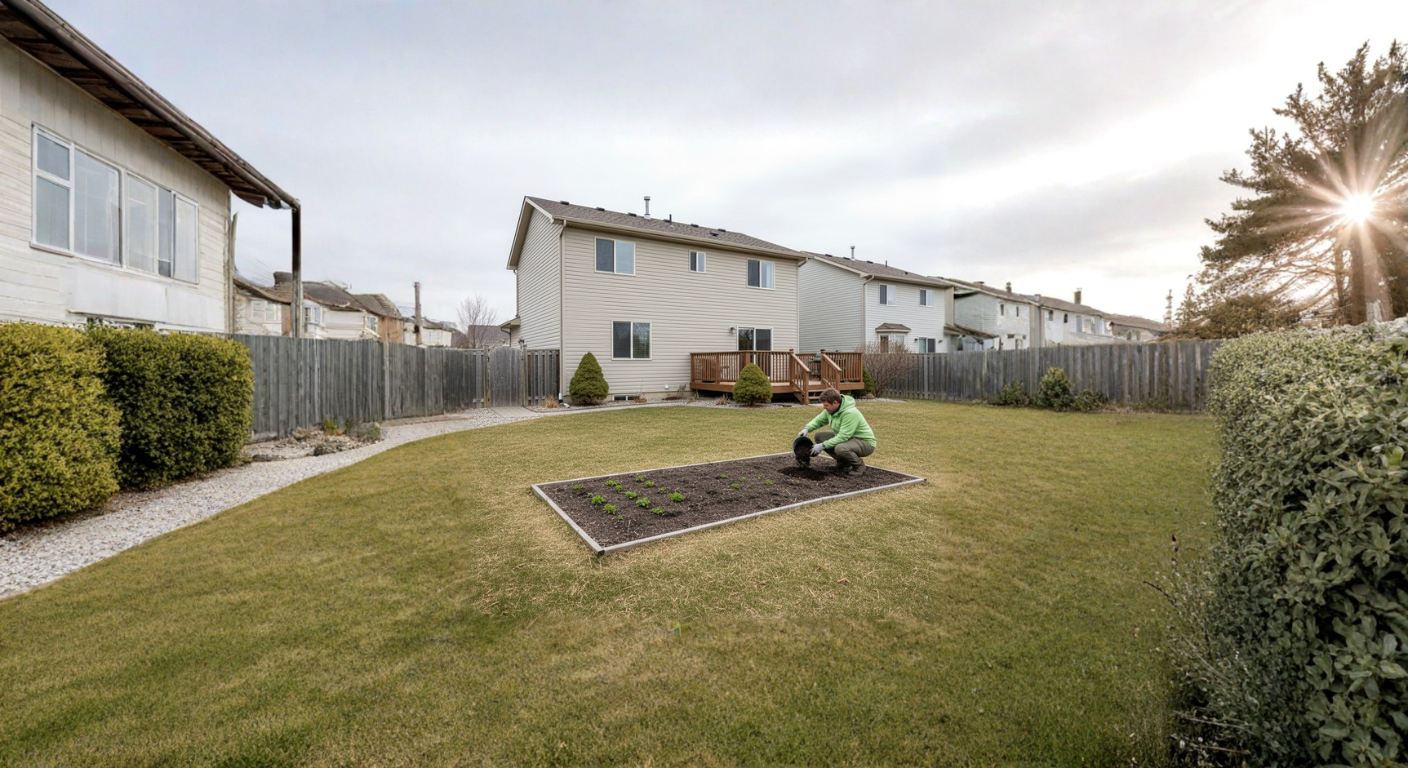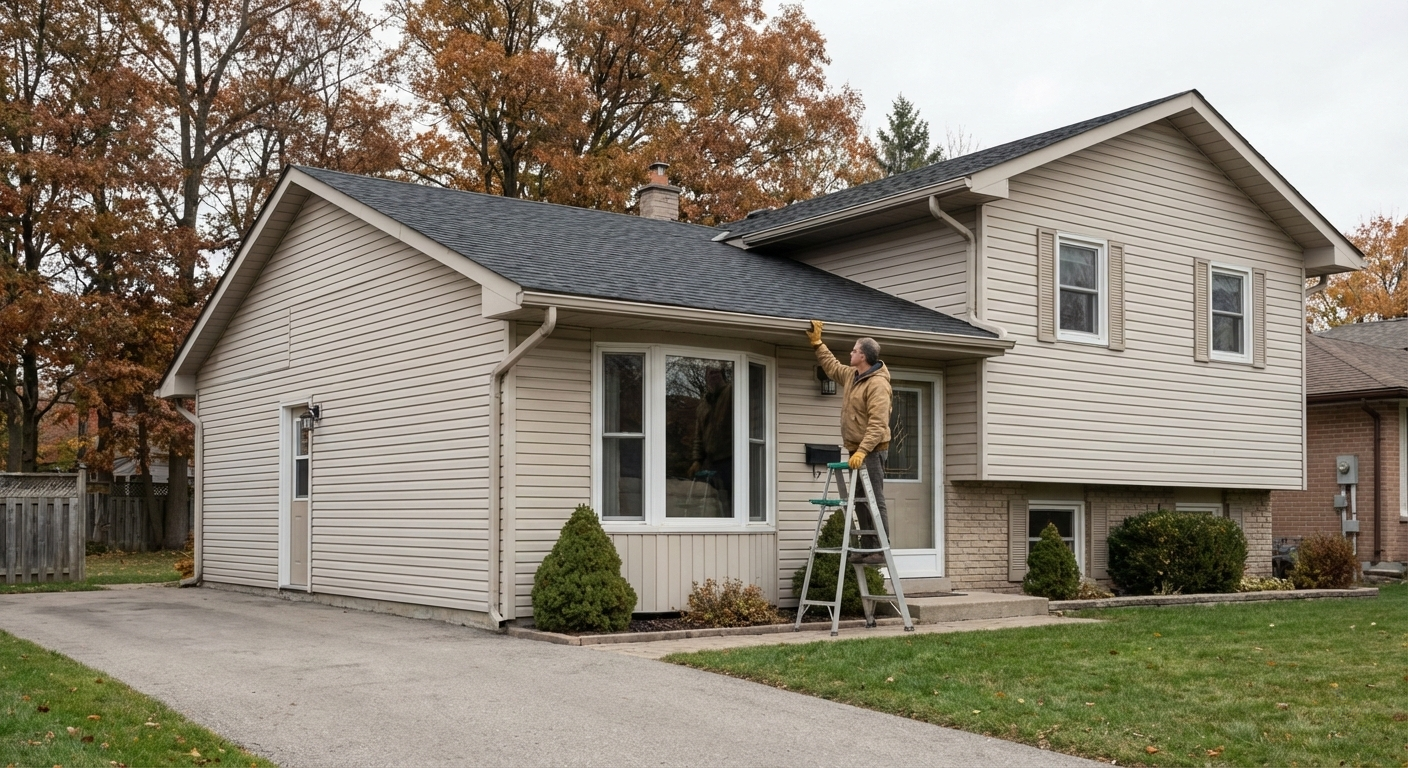How often should I fertilize my lawn? What is the best time of year to fertilize my lawn? And how much does lawn fertilization cost in North York, 2024? These are common questions seniors and homeowners ask when seeking professional lawn care and maintenance in North York.
Lawns are not just a visual asset; they enhance curb appeal and property value. However, they require regular maintenance to stay lush and healthy.
For seniors, the physical demands of mowing and fertilizing can be daunting. This is where professional lawn maintenance companies in North York like Custodia come into play, offering expertise and relief from these tasks.
But what exactly is lawn fertilization, and how do you know when your lawn needs it?
In this article, we delve into the importance of regular lawn inspection and fertilization.
We’ll also explore the benefits of maintaining a well-fertilized lawn, including improved aesthetics, better resistance to pests and diseases, and enhanced environmental benefits.
Additionally, we’ll provide practical tips to help seniors and homeowners improve their lawn’s health and longevity.
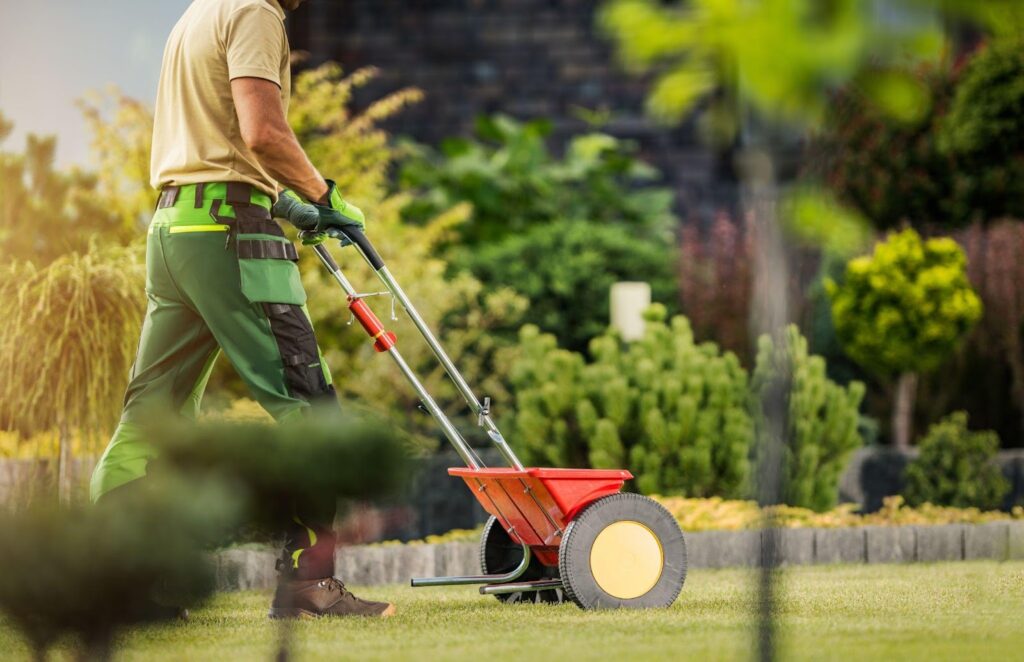
What Is Lawn Fertilization?
Lawn fertilization is the practice of applying essential nutrients to the soil to promote healthy grass growth and overall lawn vigor.
These nutrients, primarily nitrogen (N), phosphorus (P), and potassium (K), are crucial for maintaining a balanced and thriving lawn ecosystem.
These nutrients are vital for various aspects of lawn health and resilience.
Related Resource: If you are managing a property in the North York area, don’t miss our comprehensive yard cleanup service in North York for season-specific tips.
What Are The Importance Of Nutrients For Lawn Health?
Nitrogen (N)
- Stimulates leaf and stem growth, giving the lawn a lush, green appearance.
- Essential for photosynthesis and overall plant vigor.
- Helps in recovering from stresses like mowing, foot traffic, and environmental changes.
Phosphorus (P)
- Promotes strong root development, enhancing the lawn’s ability to absorb water and nutrients from the soil.
- Facilitates early establishment and aids in flowering and fruiting in some grass species.
- Improves resistance to diseases and environmental stressors.
Potassium (K)
- Strengthens cell walls, making the grass more resistant to disease, drought, and wear.
- Regulates water movement within the plant, improving overall water use efficiency.
- Enhances winter hardiness and helps maintain color and vigor during stressful periods.
Ensuring a balanced supply of these nutrients through proper fertilization practices is essential for maintaining a healthy lawn that can withstand various environmental challenges and continue to thrive over time.
Get Professional Lawn Advice
Call 1-833-410-4357 or Request Your Free Consultation Online from our specialists to start enhancing your lawn today!
What Are The Signs My Lawn Needs Fertilizer?

Recognizing when your lawn needs fertilizer involves observing specific signs that indicate nutrient deficiencies or overall health issues.
Here are common signs to look out for:
- Faded or Yellowing Grass
If your lawn appears dull or yellowish, especially compared to neighboring lawns, it may lack essential nutrients like nitrogen.
- Slow Growth
Grass that grows slowly or unevenly, despite adequate watering and sunlight, could indicate a need for nutrients such as phosphorus or potassium.
- Thinning or Bare Patches
Areas of your lawn that are thinning out or developing bare patches may benefit from fertilization to encourage new growth and fill in gaps.
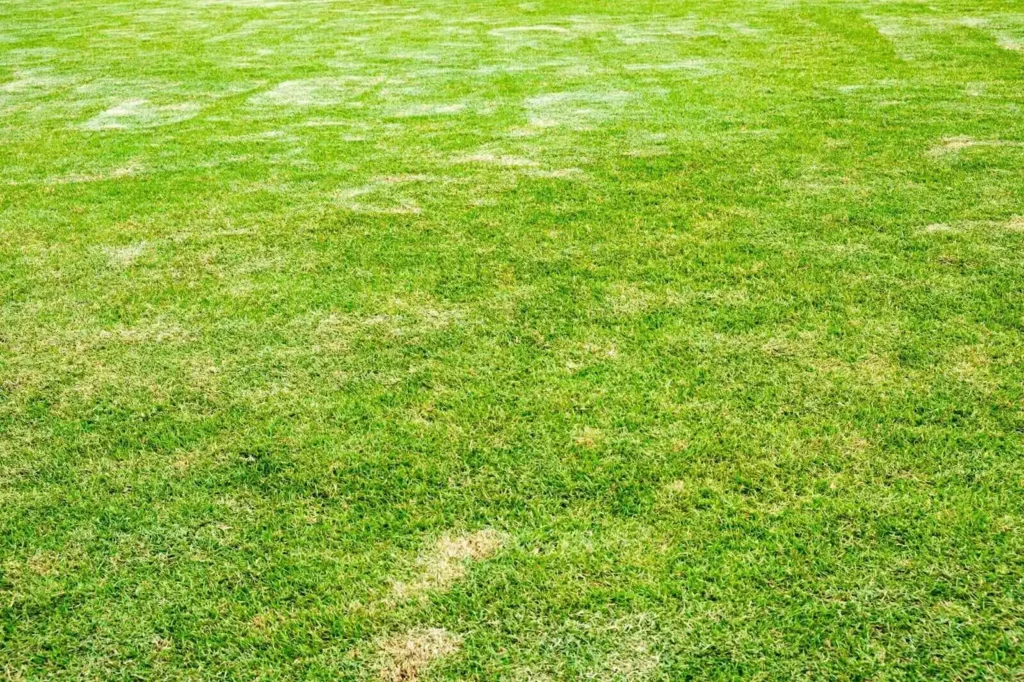
- Weed and Pest Infestations
A lawn that is overrun with weeds or susceptible to pest infestations might be weakened due to nutrient deficiencies. Fertilization can help strengthen grass and reduce weed invasion.
- Compact Soil
Soil that feels hard or compacted can restrict root growth and nutrient uptake. Fertilization, along with aeration, can improve soil structure and nutrient availability.
- Seasonal Considerations
Different seasons also dictate lawn care needs. For instance, in spring, grass may need a boost after winter dormancy, while fall fertilization prepares it for winter and promotes early spring growth.
- Soil Testing
Conducting a soil test every few years can provide precise insights into your lawn’s nutrient levels and pH balance, guiding you on the specific types and amounts of fertilizer needed.
What Are The Different Types Of Lawn Fertilizers?
Here are the common types of fertilizers and their benefits for North York lawns.
Granular fertilizers
- Available in slow-release formulations that gradually release nutrients over an extended period, reducing the frequency of applications.
- Convenient to apply with spreaders, ensuring even distribution across the lawn.
- Suitable for long-term lawn care plans and enhancing soil structure.
Liquid fertilizers
- Quickly absorbed by plants, providing rapid results in terms of growth and color enhancement.
- Ideal for addressing specific nutrient deficiencies or quickly boosting overall lawn health.
- Can be applied directly to the foliage (foliar feeding) or soil for immediate nutrient uptake.
Organic fertilizers
- Derived from natural sources such as compost, animal manure, or organic by-products.
- Improve soil structure and fertility over time, promoting microbial activity and long-term sustainability.
- Generally slower to release nutrients but contribute to overall soil health and environmental benefits.
Choosing the right type of fertilizer depends on factors like soil type, grass species, climate conditions, and desired lawn appearance.
Incorporating a balanced fertilization program tailored to these factors ensures optimal nutrient uptake and promotes a healthy, resilient lawn throughout the year.
Our Service Areas: While this guide focuses on Etobicoke, we offer specialized maintenance across the region. Check out our dedicated guide forLawn maintenance service in Oakville, or contact us for services in Scarborough, Vaughan, and Mississauga.
Start Your Lawn Transformation
Call 1-833-410-4357 or Book Your Free Consultation online with Custodia for expert guidance and a no-obligation quote!
What Are Benefits of Lawn Fertilization for Seniors in North York, Ontario?

Here’s why regular fertilization can significantly enhance your outdoor space:
- Improved Aesthetic Appeal
Regular fertilization promotes dense, lush green grass that enhances the visual appeal of your property, making it a source of pride in your neighborhood.
- Enhanced Property Value
A well-maintained lawn not only beautifies your home but also increases its market value. Potential buyers are often drawn to homes with healthy, attractive landscapes.
- Environmental Benefits
Fertilized lawns contribute to environmental sustainability by reducing soil erosion and improving water infiltration. They also act as natural filters, capturing pollutants and improving air quality.
- Healthier Living Environment
Spending time in a well-maintained lawn provides numerous health benefits, including stress reduction, improved mood, and opportunities for gentle exercise like walking or gardening.
- Reduced Maintenance Efforts
Properly fertilized lawns are more resistant to weeds, pests, and diseases, reducing the need for frequent and costly interventions such as herbicides or pesticides.
- Long-term Cost Savings
Investing in regular fertilization can prevent expensive lawn repairs and replacements in the future. It’s a proactive measure that pays off in terms of reduced maintenance costs over time.
For personalized advice tailored to your lawn’s specific needs, consider reaching out to Custodia for a free professional consultation.
Our expertise in lawn care ensures you receive the best recommendations and services to maintain a vibrant and healthy lawn throughout the year.
FAQs on Lawn Fertilization
How much fertilizer should I apply to my lawn?
The amount of fertilizer to apply depends on factors like your grass type, soil condition, and the specific fertilizer’s instructions.
As a general guideline, apply fertilizer at a rate recommended on the product label, usually measured in pounds per 1,000 square feet.
Over-application can harm your lawn, so follow instructions carefully to avoid nutrient imbalance or environmental impact.
How can I test the pH of my lawn soil?
Testing your soil pH is crucial for understanding its acidity or alkalinity, which affects nutrient availability to your lawn.
You can use a soil pH testing kit or send a soil sample to a local agricultural extension service for analysis. Adjusting pH levels can optimize nutrient uptake and promote healthier grass growth.
How long should I wait to water my lawn after fertilizing?
It’s best to water your lawn immediately after fertilizing, as this helps nutrients penetrate the soil and reach the roots.
However, if you’re using a granular fertilizer, wait until after the first watering to minimize nutrient runoff. Watering within 24 hours of fertilizing is generally recommended to maximize effectiveness.
How long should I wait to mow my lawn after fertilizing?
Wait about 24 to 48 hours after fertilizing before mowing your lawn. This allows the fertilizer to settle and be absorbed by the grass roots.
Mowing too soon can reduce fertilizer effectiveness by removing nutrients before they are fully absorbed, potentially affecting lawn health and appearance.
Is it safe to let pets and children play on the lawn after fertilizing?
It’s advisable to keep pets and children off the lawn immediately after fertilizing, especially if you’ve used chemical-based fertilizers.
Follow product instructions for specific safety guidelines. Once the fertilizer has been watered in and the lawn is dry, typically within 24 to 48 hours, it should be safe for normal activities.
What are the benefits of hiring a professional for lawn fertilization?
Hiring a professional ensures expertise in choosing the right fertilizers, applying them correctly, and timing treatments for optimal lawn health.
Professionals can conduct soil tests, diagnose lawn issues, and provide tailored care that meets your lawn’s specific needs, saving you time and ensuring effective results.
What are the risks of DIY lawn fertilization for seniors?
DIY lawn fertilization can pose physical risks to seniors due to the physical exertion involved in handling heavy bags, operating equipment, and applying fertilizers correctly.
Improper application can lead to over-fertilization, nutrient imbalance, or environmental damage.
Professionals mitigate these risks by offering safe, efficient, and customized lawn care solutions tailored to senior homeowners’ needs.
Ready to Transform Your Lawn? Contact Custodia Experts Today!
Call 1-833-410-4357 or Book Free Professional Consultation Online and claim your quote at no cost!
Let our experienced team tailor a lawn care plan that suits your needs and ensures a vibrant, healthy lawn year-round.

